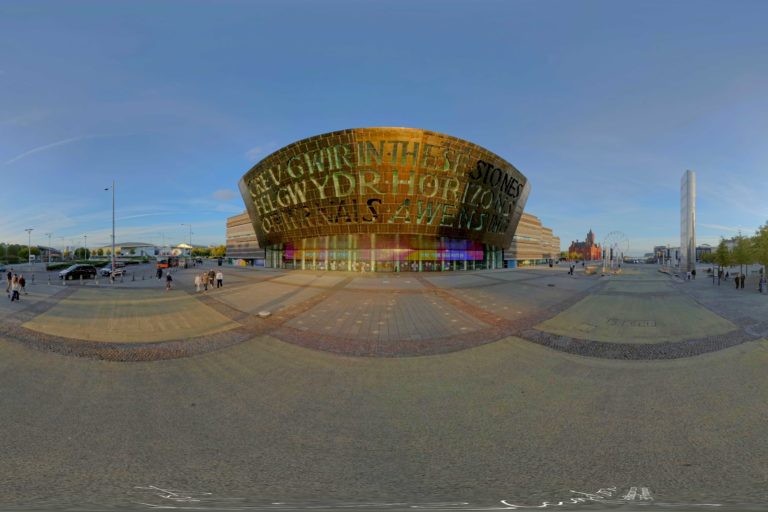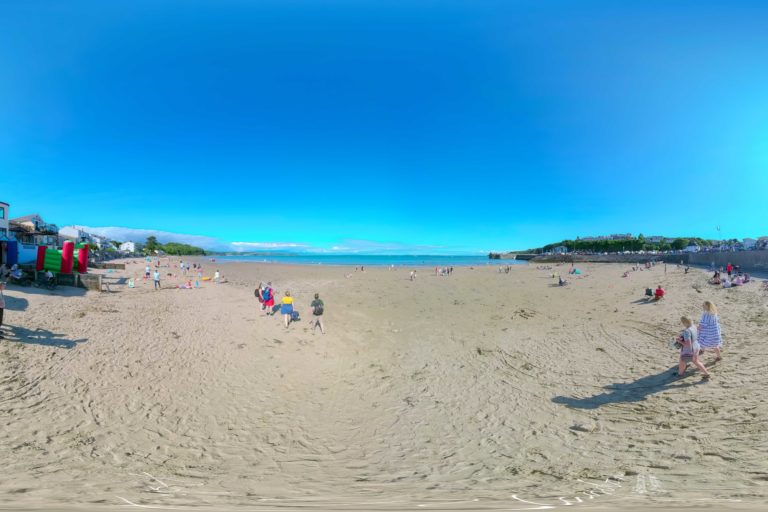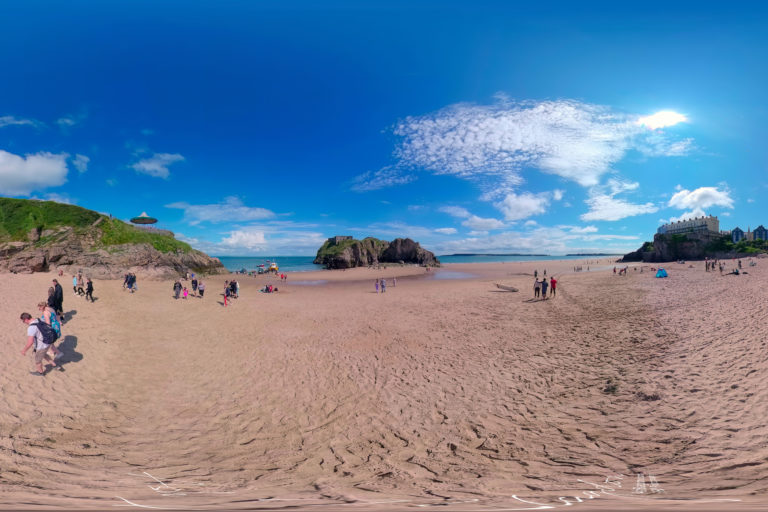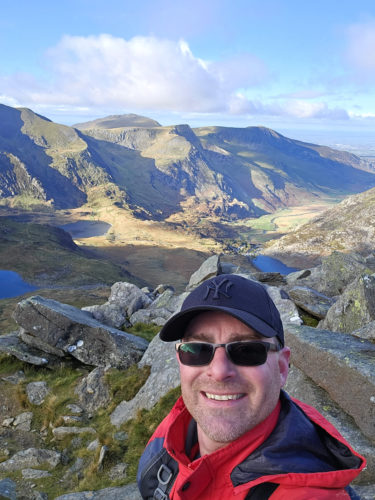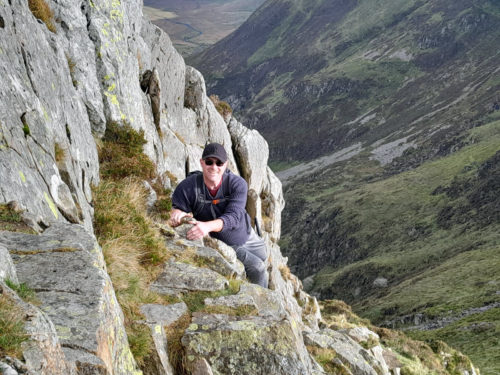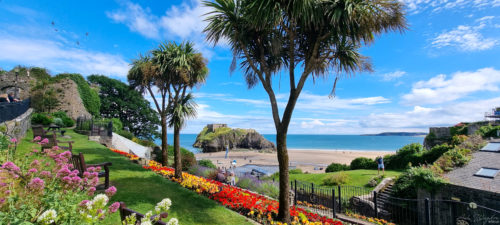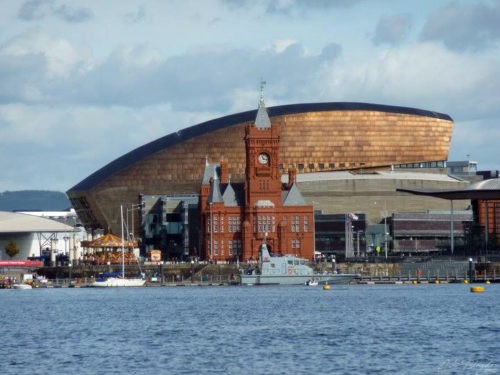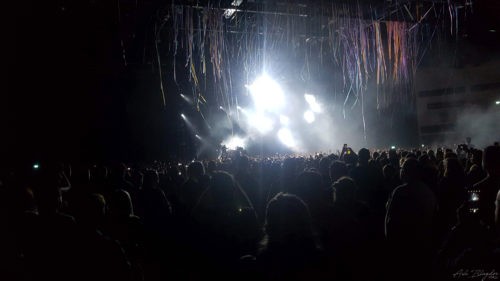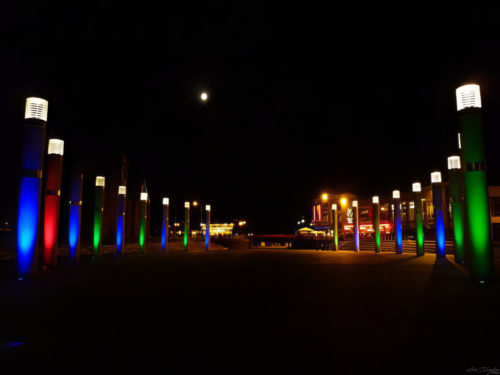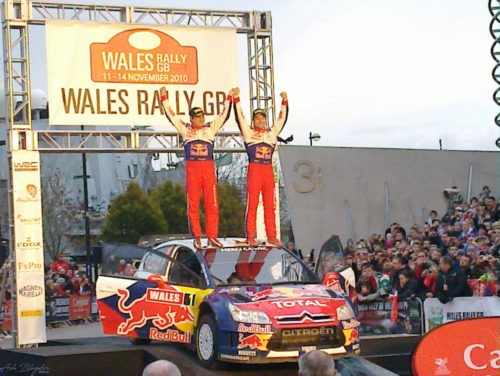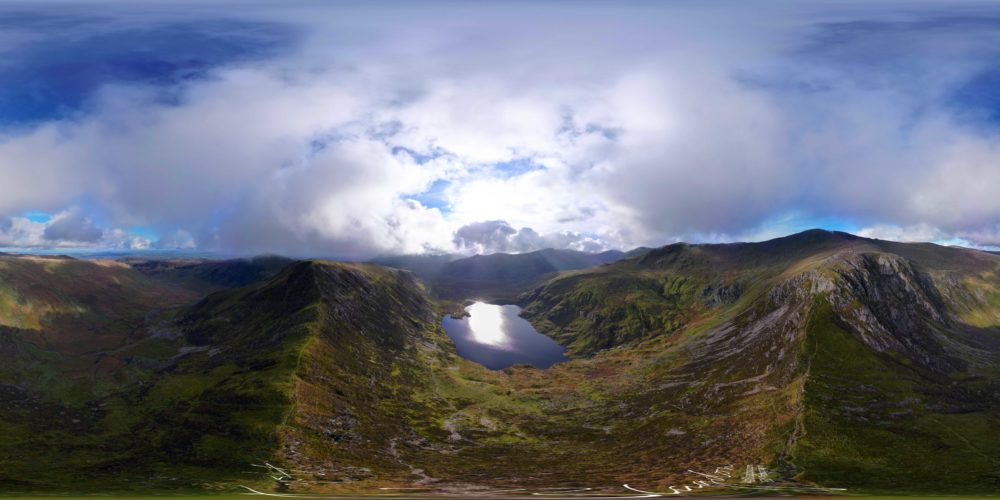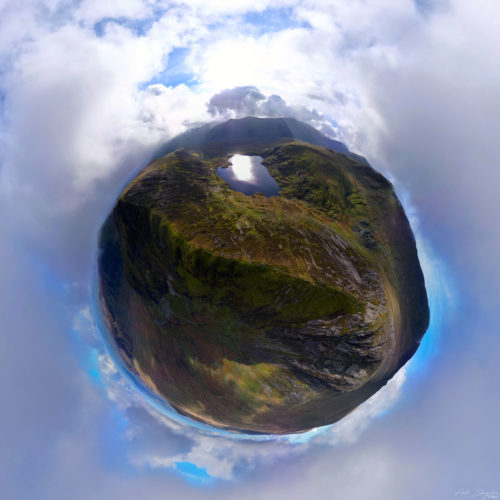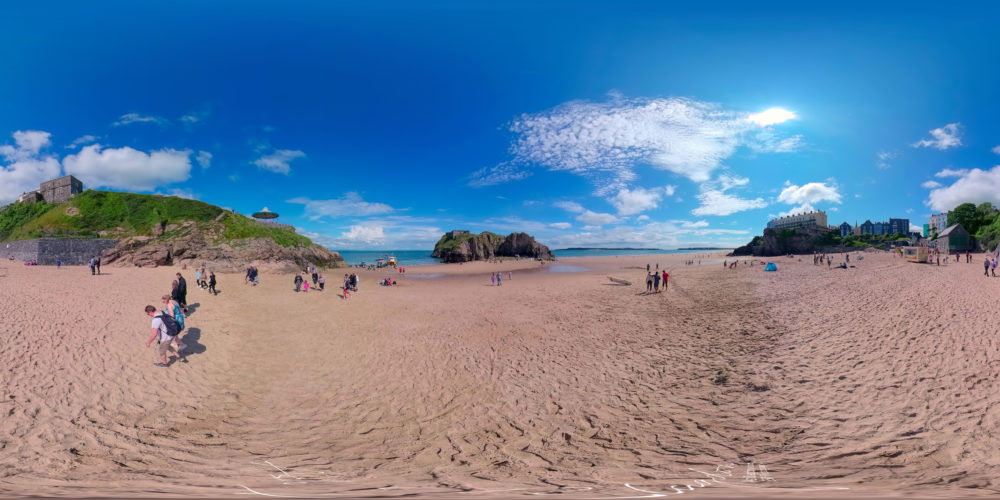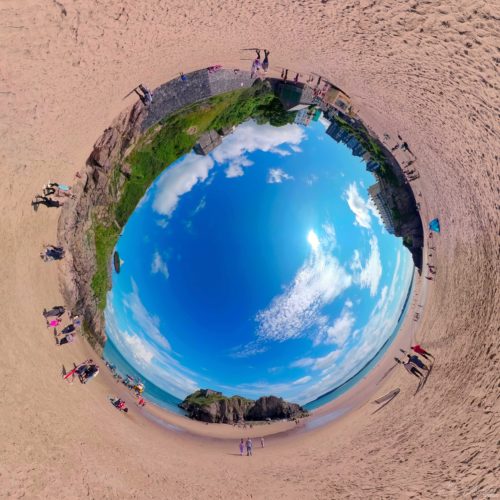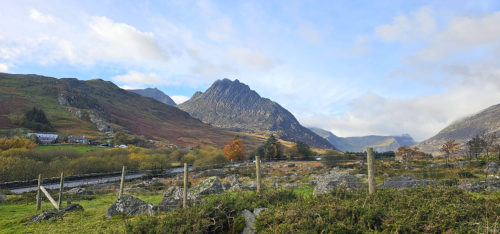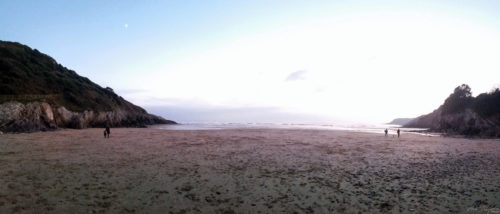Enjoy a 360º virtual tour of Wales famous for its rugged coastline, castles, beautiful National Parks, sheep-dotted pastures and mountainous landscapes.
I’ve had the pleasure of coming to Wales numerous times over the years, but most of my visits have been in the South. My one and so far only visit to the North climbing a few mountains in Snowdonia National Park has given me the desire to go back to explore even more. The climb up Tryfan was a fun grade 1 scramble with a few climbing moves and then we climbed Carnedd Llewelyn, which is more of a slow hike with a couple scrambles. The views, once the clouds dispersed were stunning all around whichever direction you looked.
I’ve been to Cardiff 5 or 6 times, maybe more I’ve lost count. I even spent 2017 NYE in the city, the atmosphere was electric in every bar we went to. The nightlife here is always a great night. During the day you can check out the Castle, Natural History museum and Cardiff Bay. Don’t forget there’s often some great bands playing at either the Principality or at the Motorpoint arena. Of coarse there’s also Rugby. The Welsh are huge Rugby fans and when there’s a home game on the fans are everywhere singing and dancing around.
I did spend a weekend around Tenby, Saundersfoot and the Pembrokeshire coast. A medieval walled town with stunning beaches and definitely somewhere you should see if you’re near.
Back in 2010 I came for the Rally GB and drove to many of the stages and got to see some of the stunning Brecon Beacons. I’m yet to return and a hike around Pen y Fan is on my to do list.
Costs are broadly comparable with the rest of the UK; hotels, bars and restaurants in Cardiff are relatively expensive, while the rest of the country is perhaps slightly cheaper. Petrol and diesel is often much more expensive in rural Wales than in the main towns and cities.
If you do drive in Wales, around the South is easy, but the further North and more rural you go, it can become more difficult with narrower, windy roads. Weather can also play havoc. I remember once driving and then a thick fog came out of nowhere, it was so thick we could hardly see past the bonnet of the car. We used the sat-nav to help us know what was coming up ahead.
The fantastic landscapes of Wales offer groups and friends a veritable playground when it comes to things to do.
Wales is part of Britain and so part of the UK, but is not part of England. It is correct to call Welsh people British, but incorrect and even offensive to call them English.
- Welsh is one of Europe’s oldest languages still spoken.
- The red dragon is the principal symbol of national identity and pride, personifying the fearlessness of the Welsh nation and is present on the national flag, which became an official flag in 1959.
- The leek and the daffodil are official emblems of Wales.
- Cardiff is the capital and Snowdon (or Yr Wyddfa) is its highest mountain.
- With 2 official languages (English and Welsh) and a strong Celtic tradition, Wales has a population of around 3 million. Roughly 20% of the population speak Welsh.
- Snowdonia National Park was established in 1951 and home to Snowdon, the highest mountain south of Scotland.
- Home to the town with the second-longest one-word place name in the world – LLanfairpwllg wyngyllgogery chwyrndrobwllllant ysiliogogogoch!!!
- Double Dragon from Felinfoel Brewery near Llanelli is the oldest brewery in Wales. Established in 1878.
- Welsh Whisky Company launched in 2004 with the distillery based out of the village of Penderyn, on the edge of the Brecon Beacons near Aberdare in South Wales.
- Wales has more castles per square mile than any other country in the world.
Wales was once an independent, though rarely unified nation, with a strong Celtic and Druidical tradition.
- Brecon Beacons
- Big Pit National Coal Museum
- Castles
- Caernarfon Castle
- Cardiff Castle
- Pembroke Castle
- Conwy Castle
- Great Orme
- Nant-y-Frith Caves and Falls
- St Fagans National Museum of History
- Snowdonia Nation Park
- Zip World Betws-y-Coed
- Hostels are best if you’re looking for a budget-friendly option and you don’t mind sharing facilities. In most British cities there is a selection of simple, clean and good value hostels. starting from £10 a night dorm rooms. Many modern hostels also have private rooms and en-suite bathrooms starting from £25. Amenities usually include free wi-fi, breakfast, a common room, TV and laundry facilities. Check out hostelworld.com
- Airbnb is my preferred budget choice and cost from £20 a night for a private room, while entire apartments/homes can start around £40 a night. Get £30 off your first Airbnb trip of £55 or more click here.
- Stay at the Inn, as traditional as cream tea and cake. The British pub culture often comes with the option of a bed for the night. You can socialise, eat and sleep all under one roof, which is a great way to meet friendly locals. Many date back to the 18th century and some are even older! Expect a warm atmosphere, traditional décor and the possibility of an onsite dog (or cat) to welcome you! Check out stayinapub.co.uk
- Bed & Breakfast, probably the most famous budget accommodation in the UK. These are usually private houses or farms and tend to be family ownership. Facilities can be simple (rooms may not have TV, no telephone or bathroom), but the best of them can be a home from home. Prices include breakfast. Some B&Bs won’t accept credit cards or travel vouchers, so I advise to bring cash with you.
- Budget hotels like Travelodge, Premier Inn or Easy Hotel offer the same amenities and start around £30 per night for a twin room. It’s best to book a month or more in advance.
- Campgrounds can be found all around the country and most have basic facilities. Snowdonia has a large number of campsites and finding a pitch is rarely a problem. Facilities range from the most basic with nothing more than a drinking water tap in the corner of a small field, up to plush “holiday parks” with electric hook-ups. Expect to pay around £7 per night for a place to pitch your tent. Check out campinmygarden.com
Like the rest of the UK you can eat cheap if you know where to go. Fish & chips, full English breakfast & the Sunday roast (carvery) with Yorkshire puddings and gravy are the traditional bites. Even a dirty kebab after a night out, these all just cost a few pounds. Indian or Asian food can be found for £6 at lunch times. A sit down meal at a restaurant with table will probably cost you from £25 for a main course. (Eating out at restaurants will soon put a dent in your wallet, so you’ll want to avoid doing so all the time.) Best places to buy and cook your own basic groceries are Sainsbury’s, Morrison’s, Lidl and Aldi. There are a few Welsh specialties you can find:
- Welsh rarebit (original spelling Welsh rabbit). A melted cheese and mustard dish, often spiced with onions, ale and herbs and served on toasted bread.
- Welsh cakes, aka bakestones. A traditional sweet treat similar to a scone, usually containing dried fruit or sometimes jam and covered in sugar. Best eaten warm.
- Laverbread (pronounced “lar-ver”). Is not, as the name implies, bread, but a purée made from seaweed. It is generally rolled into small cakes, mixed with oatmeal and served at breakfast alongside bacon rashers This dish is known throughout Wales but especially in the Swansea area.
- crempogs are buttermilk pancakes often served for afternoon tea
- Welsh lamb roast if you’re feeling traditional or in a hearty stew known as cawl.
Tip: Summon a waiter by raising your hand. Don’t wave or shout.
Tip: Put mint sauce on your roast to transform the flavour.
What starts as a sunny day can rapidly turn into a blizzard, storm-force gale or a disorienting, chilling fog. Every year, many have to be rescued from Snowdonia and the Brecon Beacons and some lives are lost due to falls and exposure.
- Train, There are main lines that run across the towns of the north, from Prestatyn to Holyhead, and the south from Chepstow to Pembrokeshire. Check out www.splitmyfare.co.uk that may help lower the cost.
- Bus, With greater flexibility as you travel around Wales and no need to book in advance. Check out Traws Cymru
- Car, Care should be taken on rural and minor roads, some of which are extremely narrow and poorly marked.
- Fly, There are direct flights to Cardiff airport from most UK destinations.
- Taxis and Uber around major city and towns.
- Walk, There are many Walking Trails that crisscross the country and lead you to otherwise inaccessible areas of spectacular natural beauty. You could also trek the perimeter of the country on the Wales Coast Path.
The two official languages of Wales are English and Welsh (Cymraeg)
- Tip: Bilingual signs are the norm in Wales, including on the roads, in shops, and at tourist attractions.
- Tip: Don’t be insulted if someone calls you love, dearie, pet or darling. These are commonly used and not considered rude.
- Tip: “Please” and “Thank You” are very important in the UK. Say “Please” and “Thank You” to everyone for even the smallest kindness.
- Tip: Say “Pardon me” or “Excuse me” if you bump into someone or even get close to someone. The British also say this if they sneeze, cough or do not understand something someone has said.
- Tip: Using phrases will be greatly appreciated in most of the country:
- Bore da (good morning).
- Iechyd da (cheers).
- Diolch (thank you)
In Wales the power sockets like the rest of the UK are Type G: This socket has no alternative plugs. The voltage in Britain is 220/240 AC, 50 Hz. Electrical plugs have three rectangular pins and take fuses of 3, 5 and 13 amps.
Visitors from abroad will need an adaptor for appliances that have been brought from home, such as laptops, hairdryers and phone chargers. Most hotels will have two-pronged European-style sockets for shavers only. What you need to keep you covered is a Worldwide travel adapter, check out what i’m currently using on my travels here. I always travel light and my adaptor stays in my bag all the time. It doesn’t matter where you go in the world this will have you covered and will keep you charged up and ready to go.
You’ll have great signal around the city’s, but obviously the more rural you go, the signal gets weaker. If you’re coming from abroad most mobile companies now offer a roaming service like “Roam Abroad Pass”, you pay a set amount and get to use your normal plan while in virtually any country.
-
It is easier and cheaper to purchase a PAYG (pay as you go) SIM card locally and top it up with credit. This will allow you to use the local mobile-phone networks, though you can only do this if your handset is not locked to a specific network.
-
Most of the time Wi-fi is freely available. If you’re staying in a hotel they may include Internet facilities as part of their service. Wi-fi is often available for free at libraries, many pubs, cafés and museums, so you can sit down and use your laptop, tablet or phone.
- If you want to travel by train, then I would split your fare into separate tickets. Check out www.splitmyfare.co.uk
- Costs are broadly comparable with the rest of the UK; hotels, bars and restaurants in Cardiff are relatively expensive, while the rest of the country is perhaps slightly cheaper. Petrol and diesel is often much more expensive in rural Wales than in the main towns and cities.
- Public museums offer free admission in every city throughout United Kingdom.
- Eating in the UK can get quite expensive, but for good cheap meals, visit the local pubs.
- Eat out during lunch. Restaurants offer fabulous lunch specials where you can get multi-course meals for around £10 or 2 for 1 pizza specials.
- “Please” and “thank you” are very important in the United Kingdom. Say “please” and “thank you” to everyone for even the smallest kindness.
- Say “Pardon me” or “Excuse me” if you bump into someone or even get close to someone. Brits also say this if they sneeze or cough or do not understand something someone has said.
- Always hold the door for a person following behind you.
- Do not violate a queue. It is considered very rude to push ahead in a line.
- Summon a waiter by raising your hand. Don’t wave or shout.
- It is considered rude to stare, ask questions or otherwise bring attention to someone’s disability.
- Holding the middle finger up by itself is considered insulting and vulgar.
- Holding your index and middle finger like a V sign while showing the back of your hand is considered insulting and vulgar.
If you found this helpful, please like and follow my social pages
Click here to Explore the World in 360º
Originally posted on 23 Feb 2020 @ 14:55
